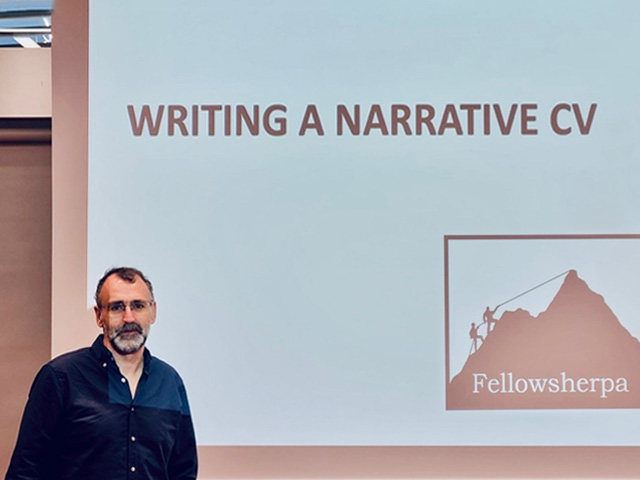
Workshop details
The workshop is divided into four sections.
(1) Introduction to authorship in scientific manuscripts: trainers discuss criteria for responsible scientific authorship; principles of research integrity.
(2) Use of AI in scientific manuscript preparation workshop: participants work in groups analysing a set of problems in AI/LLM use cases in the generation of texts, images and data to build their own set of guidelines for responsible use of these tools.
(3) AI/LLM use in writing research projects: uses of AI/LLM tools in project design; handling of sensitive or confidential data; sections of applications most amenable to appropriate AI/LLM use; setting goals & generating hypothesis; using AI/LLM in review and evaluation; intellectual property considerations.
(4) Use of AI in funding applications: participants work in groups starting from problem sets related to project writing, fellowship applications, and collaborative projects to produce guidelines for the use of AI/LLM tools in funding calls.
Duration: 8 classroom hours + 4 hours homework.
Number of participants: The course can accommodate up to 24 participants.
Target audience: PhD students, Postdocs.
Please contact us for further information. Prices and scheduling available on consultation.
Research funding agencies and recruiters are adopting new CV formats that incorporate narrative elements to offer scientists the possibility to explain a broader range of research achievements, including non-traditional outputs and work in areas such as mentorship, management or administration. This course teaches students how to build a narrative around their traditional “bullet point”-style CV. The value of identifying and highlighting achievements and skills in a narrative form goes beyond the narrative CV itself, as they prepare candidates to apply for a more diverse set of roles, as well as improve the writing of cover letters and performance in interviews both in and out of academic research.
Course details
The workshop is divided into four sections.
(1) Introduction to the narrative CV: DORA, CoARA, and the problem of research assessment; the rationale behind the adoption of narrative CVs; standard narrative CV formats.
(2) CV and cover letter workshop: in groups, participants identify the narrative elements in their CVs and cover letters; peer to peer storytelling exercises.
(3) Narrative CV formats: introduction to standard narrative CV templates, with a focus on the widely used UKRI template; narrative CV categories and their application to cover letters, interviews, and resumés.
(4) Narrative CV reception: strengths and weaknesses of narrative CVs; funding agency trends;
reviewer comments on narrative CV scoring; candidate comments from previous calls.
Participants provide their standard CV and a cover letter before the course. After the course, students are asked to provide a full version of their narrative CV to receive individual feedback.
Duration: the course is offered in two formats. A long format (1 day - 8 classroom hours) for early researchers and a short format (1/2 day – 4 classroom hours), usually for more senior scientists. The short version includes fewer practical exercises on account of the expected experience of the participants. In both cases, participants will need approximately 8 additional hours for homework.
Number of participants: The course can accommodate up to 24 participants.
Target audience: PhD students, Postdocs, Senior Researchers.
Please contact us for further information. Prices and scheduling available on consultation.